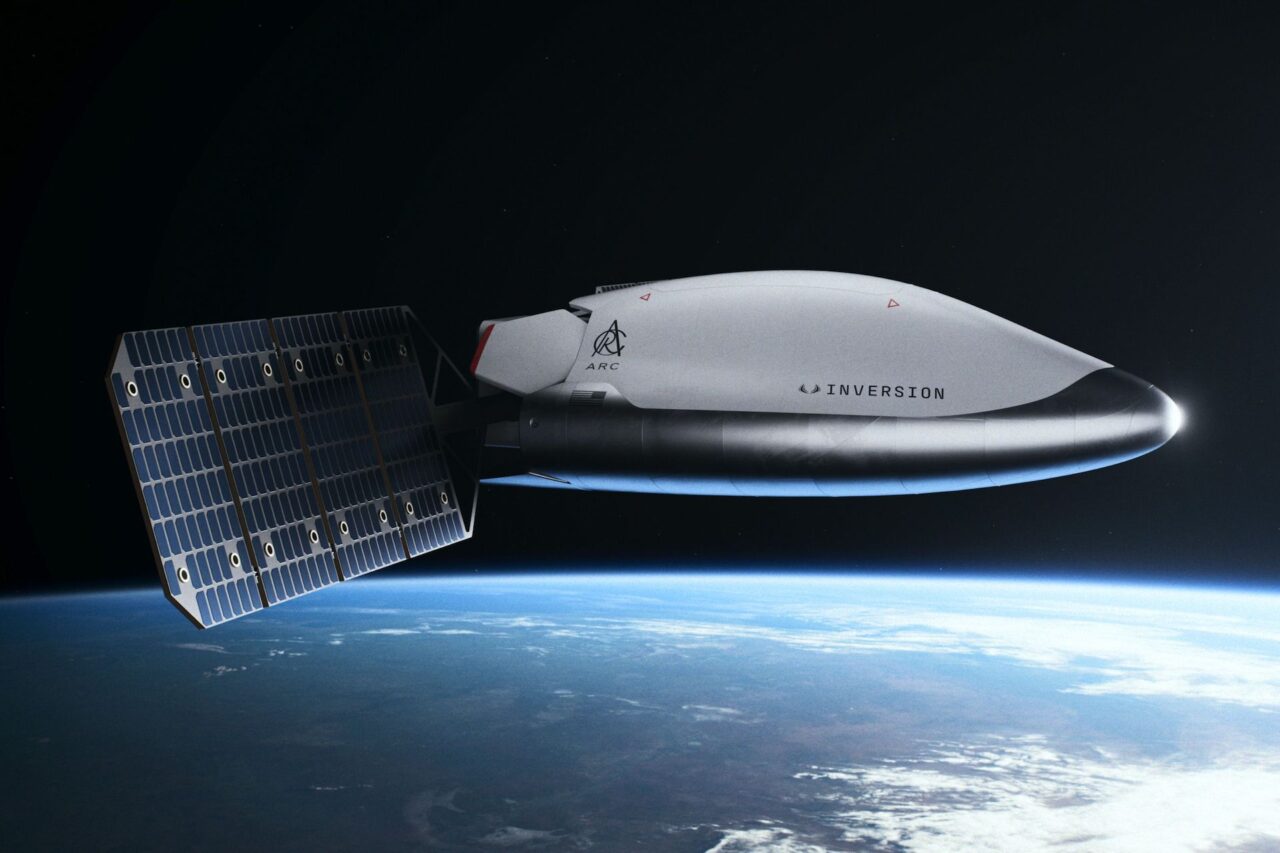A new delivery system designed to transport cargo from space to Earth is taking shape with the emergence of Inversion Space, a startup founded in 2021. The company is preparing to launch its flagship vehicle, named Arc, which aims to deliver supplies anywhere on the planet within one hour. This innovative space-based delivery vehicle is set to redefine logistics by establishing a constellation of on-demand spacecraft positioned in low Earth orbit.
Inversion Space unveiled the Arc this week, showcasing a spaceplane-cargo capsule hybrid measuring 4 feet wide and 8 feet tall. The vehicle can carry up to 500 pounds (approximately 225 kilograms) of cargo, targeting military and commercial payloads. The company plans to launch Arc by the end of 2026, building on insights gained from its recent demonstration vehicle mission.
Transforming Global Logistics
The core mission behind Arc is not merely providing access to space but ensuring rapid delivery of cargo from orbit to any location on Earth. The autonomous vehicle will ascend to low Earth orbit, where it can store cargo for up to five years. When required, Arc will re-enter the atmosphere and land using parachutes, equipped with a deorbit engine and navigable parachute for precise descent.
Inversion Space envisions deploying a fleet of reusable vehicles in orbit that can return to Earth based on customer needs. The startup is particularly focused on military applications, highlighting the potential for the U.S. military to leverage Arc’s speedy return capabilities. According to Inversion Space, “Arc reshapes defense readiness by enabling access to anywhere on Earth in under an hour – allowing for the rapid delivery of mission-critical cargo and effects to austere, infrastructure-limited, or denied environments.” This capability positions space as a new frontier for global logistics, promising enhanced speed and resilience for national security.
Initial Launch and Development Progress
Inversion Space launched its first vehicle, named Ray, in January 2023, as part of SpaceX’s Transporter-12 rideshare mission. The mission served as a critical test of the company’s technologies, focusing on in-orbit systems and reentry capabilities. While the mission largely succeeded, it faced challenges when Ray experienced a propulsion malfunction that impeded its reentry process.
Despite this setback, the company regarded Ray as an effective platform for validating essential technologies. In a statement, Inversion noted, “Our first spacecraft, Ray, has completed its mission on-orbit – serving as an extremely successful testbed for validating key technologies despite not attempting re-entry due to an on-orbit short circuit in a component preventing our deorbit engine from igniting.” The startup underscored that nearly all systems aboard Ray were developed in-house by a compact team of 25 employees.
Although Inversion Space is a newcomer in the aerospace industry, it aims to produce hundreds of its vehicles annually, with an ambitious goal of establishing a comprehensive fleet of cargo reentry spacecraft by 2028. As the landscape of space logistics evolves, Inversion’s innovative approach may pave the way for rapid and efficient cargo delivery, transforming how goods are transported across the globe.
